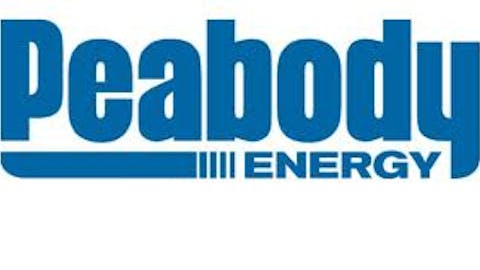Even if CONSOL Energy Inc. (NYSE:CNX) has not been hit quite as hard as some of its peers by the weakened demand for coal, the business has still been struggling recently. In the first quarter of 2013, total revenues decreased by 10% versus a year earlier and the company actually recorded a small pretax loss compared to pretax income of about $120 million in the prior year period. The thermal coal business- coal which is sold to power plants and then used to generate electricity- actually held up well, with CONSOL cutting costs enough that segment EBITDA was flat. However, metallurgical coal (an input in steel production), other coal, and even CONSOL’s natural gas business turning in poorer performance than in Q1 2012. Cash flow from operations did well during the quarter, but that was due to reductions in working capital.
Analysts are projecting that CONSOL Energy Inc. (NYSE:CNX) will, at least on an adjusted basis, earn 86 cents per share this year. That results in a current-year earnings multiple of 32, suggesting that the company is in better shape than many other coal producers but still is not cheap in absolute terms. The sell-side does expect the market for coal to improve next year, and as a result the forward P/E is 14, but we are skeptical: on the thermal side, low natural gas prices are likely to keep coal demand low for some time while steel production also remains low due to economic weakness in Europe and concerns over macro conditions in China.
As part of our work researching investment strategies, we track quarterly 13F filings from hundreds of hedge funds and other notable investors (we’ve found that the most popular small cap stocks among hedge funds earn an average excess return of 18 percentage points per year). We can also use our database to track interest in individual stocks. For example, we can see that billionaire Steve Cohen’s SAC Capital Advisors more than doubled its stake in CONSOL Energy Inc. (NYSE:CNX) in the first quarter of 2013 to a total of 3.2 million shares (see Cohen’s stock picks). Southeastern Asset Management, managed by billionaire Mason Hawkins, reported a position of more than 24 million shares which was worth over $800 million at that time (find Southeastern’s favorite stocks).
Out of CONSOL Energy Inc. (NYSE:CNX)’s four closest peers- Alpha Natural Resources, Inc. (NYSE:ANR), Walter Energy, Inc. (NYSE:WLT), Arch Coal Inc (NYSE:ACI), and Peabody Energy Corporation (NYSE:BTU), only Peabody is expected to generate positive earnings per share on a forward basis. At a forward P/E of 16, Peabody is priced essentially even with CONSOL in those terms, and we’d note that this is based on somewhat high expectations for the company as it is supposed to lose 9 cents per share for 2013. Revenue was down over 10% in its last quarterly report compared to the first quarter of 2012.
Alpha, Arch, and Walter have been in even more trouble however, with each experiencing at least a 20% fall in revenue in its most recent quarter compared to the same period in the previous fiscal year. All three are also popular short targets, with at least 15% of the float held short and over 30% of the float held short in the case of Walter; as we’d implied earlier, analysts expect all three to be unprofitable next year even with the improved industry conditions which are supposed to help CONSOL Energy Inc. (NYSE:CNX) and Peabody. We would note that Walter currently makes quarterly dividend payments of 12.5 cents per share, which makes for an annual yield of 5% at current prices; Arch Coal also features a yield above 3% at this time. Still, these three companies are doing poorly enough in terms of their business that we would avoid them, and of course the fact that analysts are negative on next year’s performance is not a good sign either.
CONSOL Energy Inc. (NYSE:CNX) does seem to be the strongest coal stock given that it is actually turning in profits (with a loss in Q1, but only a small one) and is expected to do so this year and next year. Still, we don’t feel as optimistic about the industry as Wall Street analysts do and particularly with the most recent report being weak we would want to see another quarter or two of results before actually considering it as a possible turnaround stock.
Disclosure: I own no shares of any stocks mentioned in this article.






